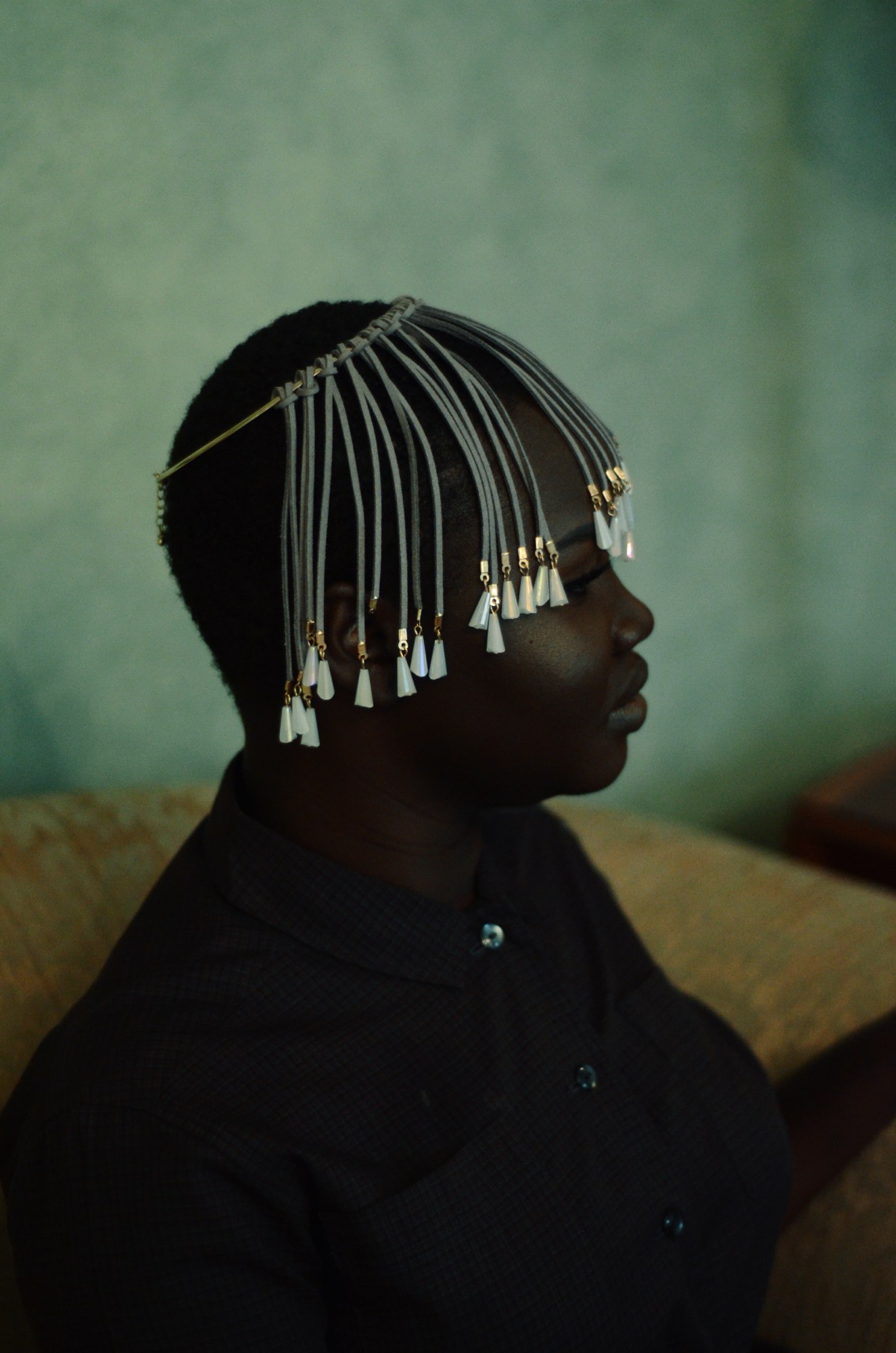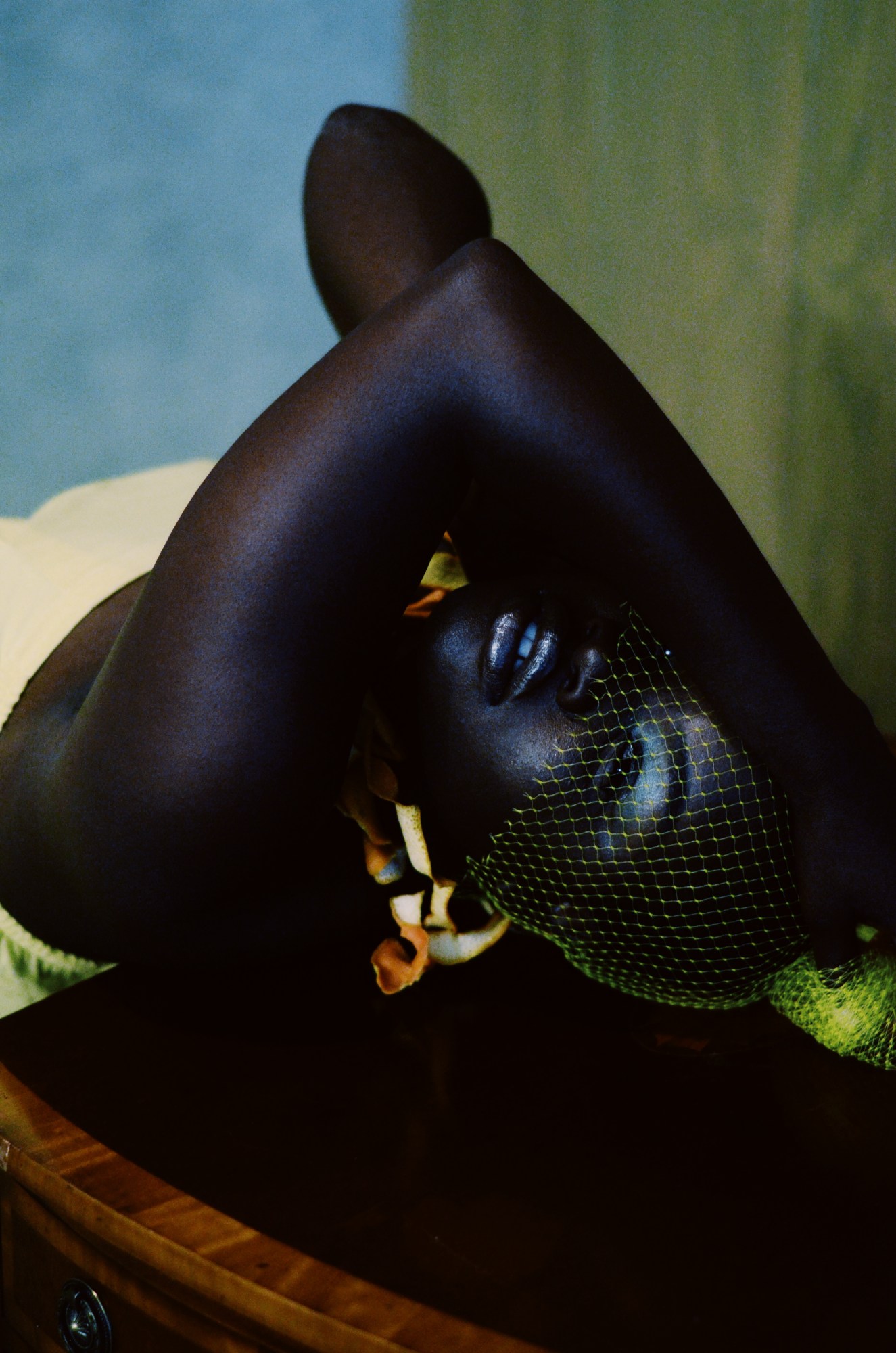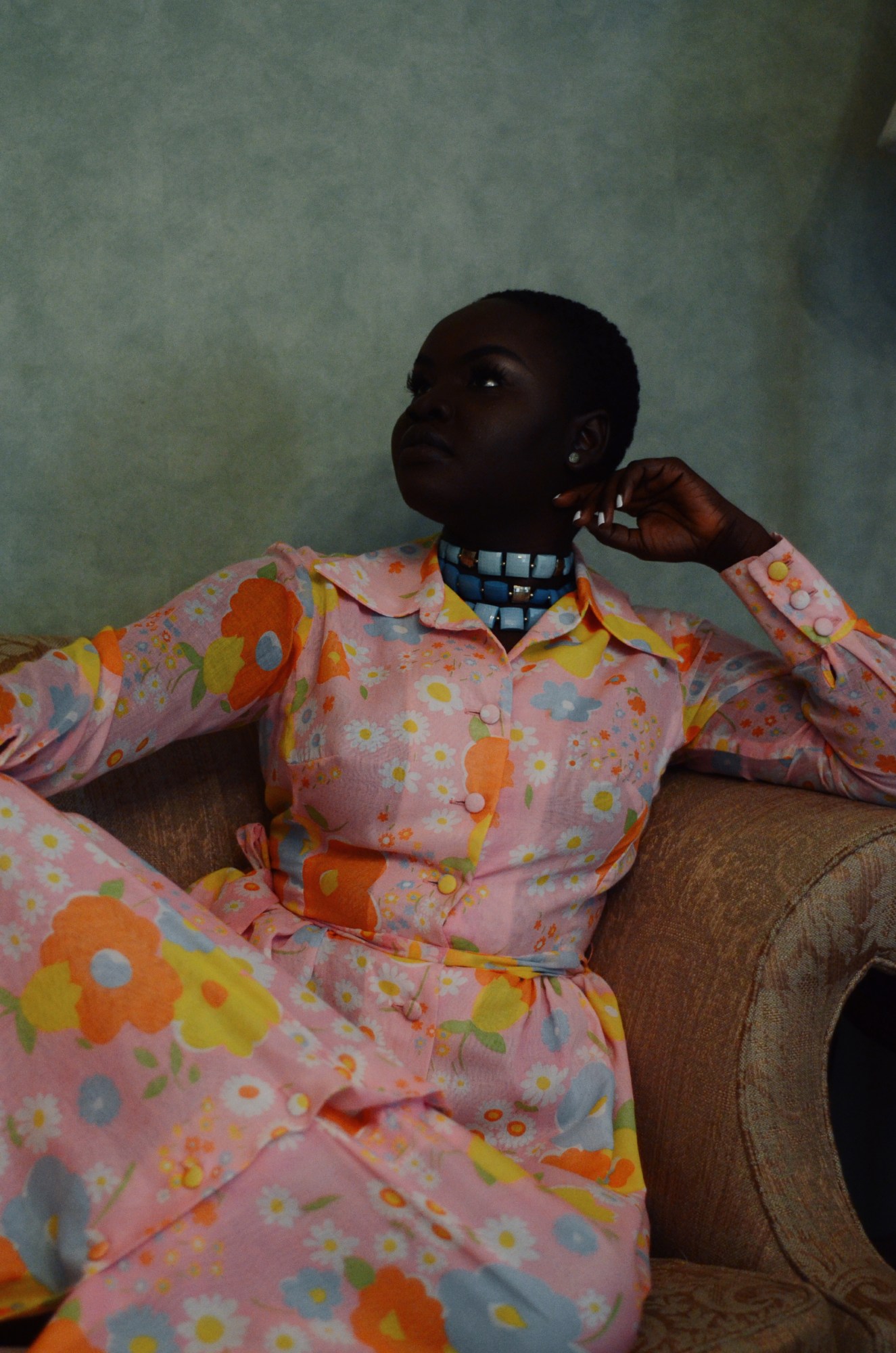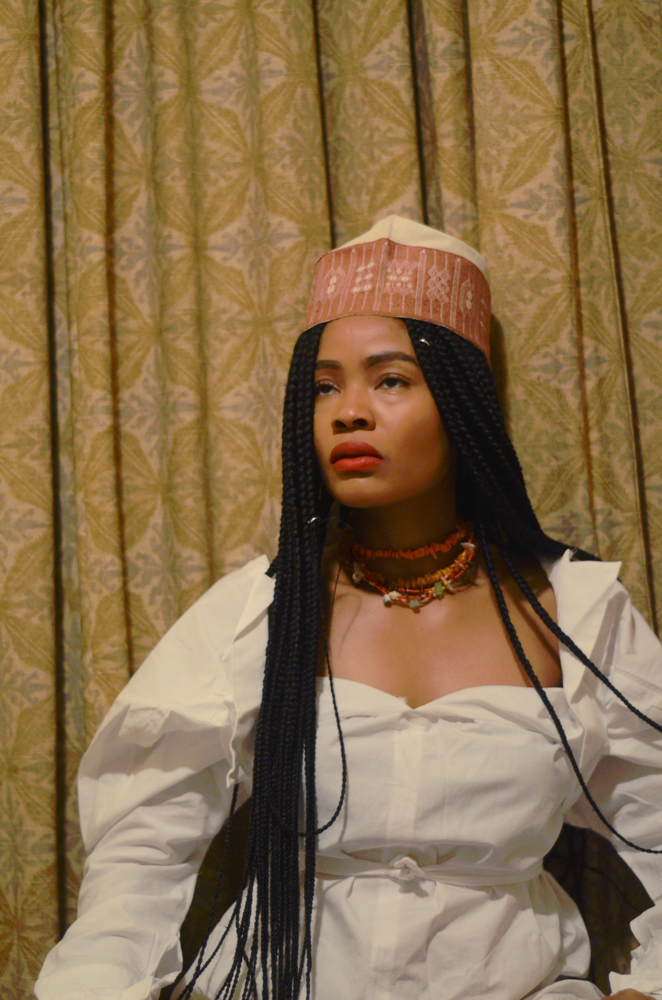Am I doing this woman thing right? Do you do this woman thing the same as me? Does it matter? Existential lady crisis — we all have it. Notes on Being a Woman is an ongoing series that examines the many myths and meanings of what being a woman is all about.
Stephanie Nnamani (or Teff Theory, Teff The Don and/or “The Expressionist” as she is known variously online) is a Nigerian photographer whose work explores the politics of identity, culture and black womanhood. With a background in social science and a belief that art is spiritual, Stephanie began her career taking self-portraits and posting them on Tumblr. But sun-drenched and style-focused, her diaristic imagery was more akin to what you might find on a gallery wall than on a fashion blog. There is an sense of intimacy and the poetic that she imbues all her work. Take for instance, Maskurade — a photostory interrogating concepts of black divinity and identity reflected in the way black women chose to wear their hair. Or The Black Victorian, a film examining the absence of black narratives within the Victorian era, and then there’s I See You — a collection of poems riffing on love.

Continuing her mission to challenge the status quo and capture underrepresented communities, Stephanie recently teamed up with Getty Images, who together with ARRAY — the creative collective founded by Ava DuVernay — are offering grants to filmmakers and photographers who use their craft to create diverse and inclusive visual stories. By trying to rebuild the lost narrative of black women in history, Stephanie has created work that not only explores her own identity but resonates with her burgeoning audience. Here she shares her notes on being a woman.
A woman’s power is transformative . The manner in which we are able to bend what is designed to burden or break us and build bountifully from it.
The hardest thing about being a woman is that society tasks and conditions women to carry emotional burden, and when we fail to, the quality of our womanhood is questioned, undermined. When we succeed, we are praised for our strength. I had this incident on a plane from Abuja to Enugu, Nigeria last year. The airline assigned random seating to a family of five with three young children, and the mother rightfully refused to leave her five-year-old son to sit among strangers. Out of everyone seated on the plane, the attendant foregoes all the men seated around me and looks directly to me and asks if I would consider switching my seat to accommodate. He didn’t attempt to speak to nor reason with any of the passengers seated around me who were men. He did so based on the very assumption I would readily comply, and it amplified the truth that society indeed holds men and women to different moral expectations. It makes one question the source of our resilience: is it that we are inherently resilient? Or perhaps, circumstance(s) demand that we must be?
The best advice someone ever gave me about human bodies was to remember to breathe. Because sometimes, we forget to.

When I was 16, I had totally the wrong idea about intelligence. I placed an emphasis on grades as a measure of intelligence. I realise now how deeply it undermined the learning experience. Oh, and angst. I thought I knew angst, until I reached the age of 22.
The most unexpected thing I’ve found about being a woman is that we have the emotional vulnerability to love, and companionship does not equate weakness. It is a veritable expression of fully accessing my capacity to be human.
I am happiest when I am creating.
My favourite song about being a woman is Keep Ya Head Up by Tupac Shakur.
The woman I admire most is my mother.
The best thing about getting older is being strengthened by the power of choice that has been carved and emboldened through experience. Knowing what is feeding me, and what isn’t. It is as refreshing as it is empowering. Self-preservation — I enjoy that deeply.
The biggest lie about getting older has to be the promise of freedom; the idea that with age, you’re free. They don’t tell you that freedom must be earned regardless of age. They don’t tell you freedom must be managed, or it is forfeit.

Gala Gordon asks: If you could be any other woman for the day, who would you be and why? None. I have no interest in being liked for anything less than who I am, what I am. I am relentlessly committed to the display of my truth, and allow the world the freedom to respond as they so choose.
My question for the next woman doing this column is: When did you last define freedom for yourself?
Credits
Photography Stephanie Nnamani, Getty Images
